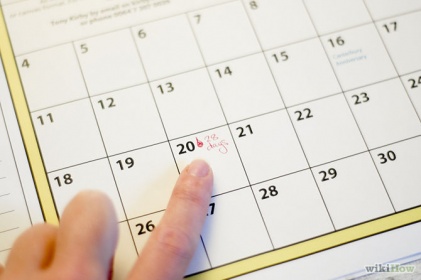 While you most likely enjoyed the nice break from your period, now that baby’s out of your belly, your monthly visitor will soon be returning. Here’s what you need to know.
While you most likely enjoyed the nice break from your period, now that baby’s out of your belly, your monthly visitor will soon be returning. Here’s what you need to know.
One of the peculiar perks of pregnancy is nine-plus months of no menstrual period. But after your baby is born, it’s just a matter of time before Aunt Flo pops in and says, “I’m baaaack!” If you’re not breastfeeding, you’ll likely begin menstruating between three and ten weeks after giving birth (the average is 45 days); if you’re breastfeeding, you might enjoy many more menses-free months — especially if you’re nursing exclusively. Still, your period will return eventually — and it could make its appearance even if you’re breastfeeding. And though there’s absolutely no reason to pull the nursing plug once your period does resume, your baby may react to the event with a bit of fussing (while you’re menstruating, you might experience a temporary drop in milk supply and the taste of your milk might change slightly due to hormonal changes).
But there are more serious issues to consider here: Even before that first red-letter day, you can get pregnant again (and dont’t let anyone tell you otherwise). That’s because ovulation precedes menstruation in the monthly cycle, so unless you’re planning on back-to-back babies, you’d better break out the birth control as soon as you start making love again.
Keep in mind that your contraceptive needs may have changed. For example, if you used a diaphragm or cervical cap prepregnancy, you’ll need to have it refitted by your gynecologist, as your cervix may no longer be the same size (carrying and delivering a baby can do that!). Breastfeeding mothers should know that estrogen is a nursing no-no, so those who want to go on the pill need to choose a progestin-only formula (also called the mini pill); Depo-Provera, the once-every-three-months shot, also contains no estrogen and is safe for nursing moms.
If you aren’t breastfeeding and do not want to attempt to remember a daily pill with everything else going on in your life, you might consider a longer-term contraceptive, like the patch, NuvaRing, or an IUD (also safe for nursing moms). If you have not’t already, be sure to talk to your practitioner about what’s right for you.
This article is originally written for Just For Mom via Whattoexpect.com






